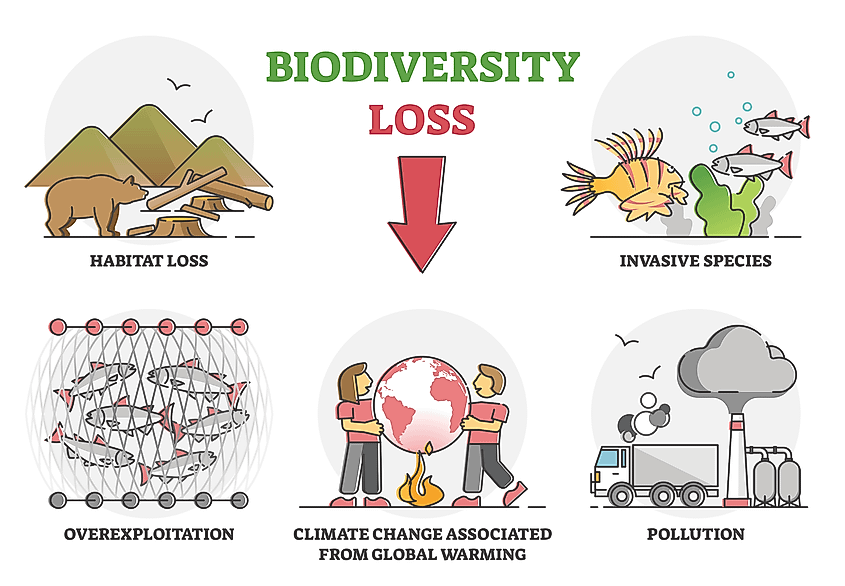
In today’s increasingly interconnected world, the intricate relationship between ecology and biodiversity stands as a cornerstone of our very existence. As stewards of the planet, it is incumbent upon us to recognize and embrace the rich tapestry that these concepts weave together. Jangkrik.ac.id serves as a beacon of knowledge and inspiration, illuminating the critical importance of preserving these fundamental aspects of our natural world. Through its online platform, this Ecology Learning Center invites individuals to delve deeper into the intricate web of life that sustains us all, offering a wealth of resources that are both comprehensive and easily accessible.
Importance of Preserving Ecology
Understanding ecology allows us to grasp the intricate connections among all living things and their environment. This knowledge is vital for safeguarding the delicate balance of ecosystems and ensuring the sustainability of our planet’s resources. By preserving ecology, we are taking a proactive step towards preserving the diversity of life forms that enrich our world.
Biodiversity, a key component of ecology, is the variety of life forms present on Earth. Preserving biodiversity is crucial as each species, no matter how small, plays a significant role in the ecosystem. By protecting different species and their habitats, we contribute to the stability and resilience of ecosystems, ensuring their ability to adapt to environmental changes and disturbances.
The preservation of ecology is not just a scientific endeavor but a moral imperative. It is our responsibility to act as stewards of the environment, ensuring that future generations inherit a world teeming with diverse life forms. Through education and awareness, we can inspire individuals to appreciate the beauty and complexity of nature, fostering a culture of conservation and respect for the rich tapestry of life that surrounds us.
Resources for Deepening Understanding
For those seeking to delve deeper into the realms of ecology and biodiversity, Jangkrik.ac.id offers a plethora of resources to quench your thirst for knowledge. From interactive virtual tours of diverse ecosystems to insightful articles penned by seasoned experts, our platform serves as a treasure trove of information waiting to be explored.
One particularly engaging feature is our collection of webinars, where renowned biologists and environmentalists share their wisdom and experiences. These virtual sessions provide a unique opportunity to learn from the best in the field, gaining valuable insights and perspectives on the intricate workings of our natural world.
Additionally, our library of downloadable infographics and educational videos serves as handy tools for visual learners looking to grasp complex ecological concepts with ease. Through vibrant visuals and concise explanations, these resources aim to simplify intricate topics and make learning about ecology and biodiversity an enriching experience for all.
Ecology’s role in Nature’s Balance
Ecology is like the conductor of a grand symphony, orchestrating the delicate interplay between organisms, their environments, and the resources they depend on. It examines the relationships between living beings and their surroundings, highlighting the intricate web of connections that sustain life on Earth. Through its studies, ecology sheds light on how disruptions in these relationships can have cascading effects on entire ecosystems, emphasizing the importance of maintaining harmony in nature.
Biodiversity, a key focus of ecological research, refers to the variety and variability of life forms within a given ecosystem. The richness of biodiversity provides resilience to ecosystems, allowing them to adapt to changing conditions and threats. Each species, no matter how big or small, plays a role in maintaining the balance of nature. From the tiniest microorganisms in the soil to the majestic predators at the top of the food chain, every organism contributes to the intricate tapestry of life that makes our planet so vibrant and unique.
Preserving ecology and biodiversity is not just a matter of conservation; it is a necessity for the well-being of all living beings, including humans. By understanding the intricate patterns and processes that govern ecosystems, we can make informed decisions that support the health of the planet. As stewards of the Earth, it is our responsibility to embrace the rich tapestry of life around us, recognizing that each species has its place and purpose in maintaining the delicate balance of nature.